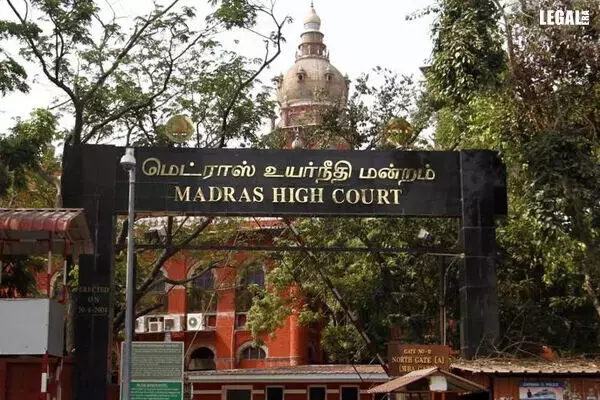- Home
- News
- Articles+
- Aerospace
- Artificial Intelligence
- Agriculture
- Alternate Dispute Resolution
- Arbitration & Mediation
- Banking and Finance
- Bankruptcy
- Book Review
- Bribery & Corruption
- Commercial Litigation
- Competition Law
- Conference Reports
- Consumer Products
- Contract
- Corporate Governance
- Corporate Law
- Covid-19
- Cryptocurrency
- Cybersecurity
- Data Protection
- Defence
- Digital Economy
- E-commerce
- Employment Law
- Energy and Natural Resources
- Entertainment and Sports Law
- Environmental Law
- Environmental, Social, and Governance
- Foreign Direct Investment
- Food and Beverage
- Gaming
- Health Care
- IBC Diaries
- In Focus
- Inclusion & Diversity
- Insurance Law
- Intellectual Property
- International Law
- IP & Tech Era
- Know the Law
- Labour Laws
- Law & Policy and Regulation
- Litigation
- Litigation Funding
- Manufacturing
- Mergers & Acquisitions
- NFTs
- Privacy
- Private Equity
- Project Finance
- Real Estate
- Risk and Compliance
- Student Corner
- Take On Board
- Tax
- Technology Media and Telecom
- Tributes
- Viewpoint
- Zoom In
- Law Firms
- In-House
- Rankings
- E-Magazine
- Legal Era TV
- Events
- Middle East
- Africa
- News
- Articles
- Aerospace
- Artificial Intelligence
- Agriculture
- Alternate Dispute Resolution
- Arbitration & Mediation
- Banking and Finance
- Bankruptcy
- Book Review
- Bribery & Corruption
- Commercial Litigation
- Competition Law
- Conference Reports
- Consumer Products
- Contract
- Corporate Governance
- Corporate Law
- Covid-19
- Cryptocurrency
- Cybersecurity
- Data Protection
- Defence
- Digital Economy
- E-commerce
- Employment Law
- Energy and Natural Resources
- Entertainment and Sports Law
- Environmental Law
- Environmental, Social, and Governance
- Foreign Direct Investment
- Food and Beverage
- Gaming
- Health Care
- IBC Diaries
- In Focus
- Inclusion & Diversity
- Insurance Law
- Intellectual Property
- International Law
- IP & Tech Era
- Know the Law
- Labour Laws
- Law & Policy and Regulation
- Litigation
- Litigation Funding
- Manufacturing
- Mergers & Acquisitions
- NFTs
- Privacy
- Private Equity
- Project Finance
- Real Estate
- Risk and Compliance
- Student Corner
- Take On Board
- Tax
- Technology Media and Telecom
- Tributes
- Viewpoint
- Zoom In
- Law Firms
- In-House
- Rankings
- E-Magazine
- Legal Era TV
- Events
- Middle East
- Africa
Madras High Court directs Customs authority to release New Zealand imported apples on securing bank guarantee towards differential duty

Madras High Court directs Customs authority to release New Zealand imported apples on securing bank guarantee towards differential duty
It was based on the Directorate General of Foreign Trade Notification No. 5 passed by the Kerala High Court
The Madras High Court has directed the Department of Customs to release fresh apples imported from New Zealand on the furnishing of bank guarantees towards differential duty.
The bench comprising Justice R. Mahadevan and Justice Mohammed Shaffiq observed that the apples, a perishable fruit in nature, and meant for human consumption, had forced the court to find it appropriate to order the release of the goods.
However, it added that it was subject to the condition that the assessee/respondent would furnish a bank guarantee to the value of the differential duty to be determined by the authority to safeguard the interests of the department.
According to the appellant/department, the apples imported could be broadly classified into two categories: cost insurance freight (CIF) priced above Rs.50 per kg and CIF priced below Rs.50 per kg.
As per the Directorate General of Foreign Trade (DGFT) Notification No. 5 of 8 May 2023, when the CIF value is below Rs. 50 per kg, the import of ‘fresh apples’ shall be treated as ‘prohibited’.
Based on the Notification, the Customs Department passed the order confiscating the goods, (fresh apples) whose value was below Rs.50 per kg. The authority assessed it at Rs.18,61,610.02 under Section 111(d) of the Customs Act, 1962.
Meanwhile, the respondent appealed for the release of the imported goods and issue detention certificates for waiver of demurrage and container detention charges in terms of Regulation 6(1)(l) of the Handling of Cargo in Customs Areas Regulations, 2009.
Based on the May 2023 stay order against Notification No. 5 passed by the Kerala High Court and the Madras High Court, the judges granted an order of interim direction to the appellant to assess and release the goods.
The appellant contended that vide the Notification, the apples, whose CIF value was below Rs.50 per kg, was prohibited from import. Though aware of it, the respondent imported the goods in violation of the notification. As per the Bill of Entry date, the notification was in force and stayed by the Kerala High Court on 11 July 2023.
On the other hand, the assessee contended that the notification prohibiting the import of fresh apples (on the ground that the CIF value was less than Rs.50 per kg) was stayed by two high courts. It was a trite law that when the notification was stayed by one high court, the operation of the order was not confined to the territorial limit of that court alone but had a pan-India effect.
Thus, the court directed the appellant to release the goods on securing a bank guarantee of Rs.2,25,000 by the respondent towards differential duty.
The bench made it clear that the interim arrangement was made only to safeguard the interests of both parties. The bank guarantee by the respondent was kept alive till the decision was arrived at on the validity of the 8 May Notification.



